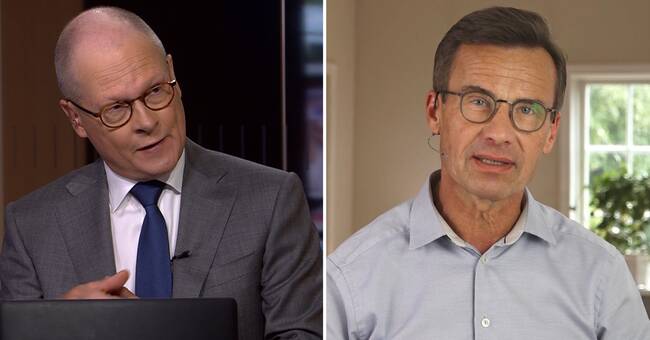The corona crisis is creating a break for the most part in Swedish politics right now. So also for the moderate leader Ulf Kristersson, who on Monday gave his summer speech from the home in Strängnäs.
Kristersson once again demanded that the Swedish corona strategy be changed and that those who are infected or ill be isolated, not all the country's elderly.
His focus on jobs and finances is also based on the sharp economic downturn that followed in the footsteps of the corona infection. As if by accident, the concept of the line of work is re-launched, coined by Fredrik Reinfeldt and Anders Borg to reduce sick leave and early retirement. Now, however, it is important to get people back to work from short-term layoffs and rapidly growing unemployment.
Unemployment and unemployment insurance are a sure way to dependency on benefits, Ulf Kristersson said in his speech. So here we have one of the conflict issues about the economy that is looming before the autumn. If the Social Democrats want to permanently complete all or part of the A-fund increase that was implemented during the corona crisis, it will thus be a political battle. The question, however, is whether the Moderates have anything to gain from it. Going against the height of unemployment insurance is not an obvious vote winner.
"The tone and criticism is harsh"Then Ulf Kristersson has better conditions to manage the debate on serious crime. Shootings, murders and stabbings continue to characterize the news flow. When Kristersson attacks Löfven for lacking the ability to stop the violence and break the trend, he moves at home. Law and order are traditionally strong moderate profile issues. They have also become increasingly important to voters in recent years.
The tone and criticism is harsh and clearly signals that Ulf Kristersson sees the autumn as a return to conflict and confrontation in Swedish politics. The famous castle peace during the corona crisis is now a thing of the past.
The rhetoric is reminiscent of SD'sKristersson rallies over the Prime Minister's actions, likens the gross violence to "Sweden's second pandemic" and points out crime as the biggest threat to Sweden, which today's politicians have experienced. In the same way, he accuses the Social Democrats of an "irresponsible" migration policy. The rhetoric is reminiscent of that of the Sweden Democrats, but at the same time reflects the change in moderate migration policy that has been implemented in recent years.
But raising migration policy is not risk-free for the Moderates. Of course, the issue can create major problems for the Social Democrats, who are on a collision course with the government partner the Green Party on the future migration policy. But at the same time, there is much to suggest that it is the Sweden Democrats, not the Moderates, who have the most to gain from a political debate dominated by refugee and immigration policy.

